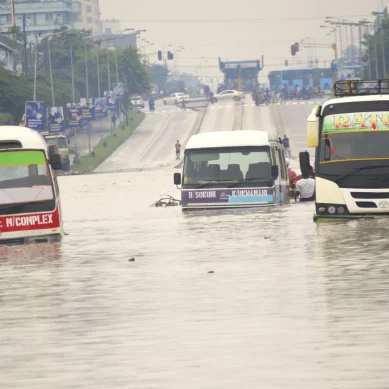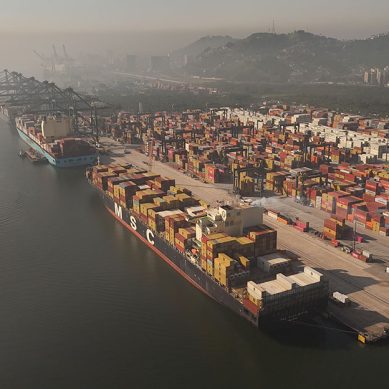
I have decided to write this article on The Need to Address Political Impunity Towards Justice-Building in Governance for Inclusive Development in Uganda because political impunity has over the years become central to leadership and governance in Uganda.
It is impossible to use the rule of law to build justice when political impunity predominates in, or is at the centre of leadership and governance. It is a political and moral joke to maintain that a government can effectively fight corruption when political impunity is at the centre of the fight. If that is the case, the top will urge the bottom to fight corruption yet the top is the beginning and end of corruption by way of political impunity.
For example, the Inspector-General of Government (IGG) Bettie Kamya, wanted to use a method that had succeeded in conquering corruption in government and the entire economy of Singapore – the Lifestyle Audit – to fight corruption in Uganda, but the President discouraged her arguing that its application would scare the corrupt away to foreign countries in fear of persecution and invest their loot out of Uganda.
He even suggested that after all they were stealing government money (read public money), as if that did not matter. He even forgot that most of the looters evade paying taxes. If accountability and transparency mattered in Uganda, the President would have encouraged the IGG to apply the method, which had successfully eliminated corruption in Singapore, pushing it into the First World.
There are five concepts linked together in the title of this article, namely: Political Impunity, Justice-Building, Governance and Inclusive Development. There is also the concept of rule of law. We need to observe the rule of law to combat political impunity in order to build justice in governance for inclusive development. The assumption is that it is impossible to ensure rule of law and build justice for inclusive development if political impunity is at the centre of leadership and governance.
Let me make sure that we are at par in understanding these concepts before I tackle the topic.
Political impunity: is what keeps unequal class and gender arrangements in place. It is constitutive of power in all its forms. It fuels inequality, disproportionately affects the most vulnerable and undermines public trust in political institutions.
Rule of law: The rule of law is the bedrock of the legal protection of all human rights, whether they are civil, cultural, economic, ecological, environmental, political or social rights where the rule of law collapses, violent conflict erupts. Mass killings, disappearances, torture, arbitrary detention, destruction, sexual assault, rape, displacement, fear, hunger and trauma follow.
Justice-building: This is the process of sowing the seeds of social, economic, political, ecological, cultural and environmental rights for all.
Governance: This means the process of decision-making and the process by which decisions are implemented (or not implemented). Governance can be used in several contexts such as corporate governance, international governance, national governance and local governance. Good governance has eight major characteristics: It is participatory, consensus-oriented, accountable, transparent, responsive, effective and efficient, equitable and inclusive and follows the rule of law. It assures that corruption is minimized and the fears and concerns of the minority are factored in governance.
Inclusive development is an equitable development approach built on the understanding that every individual and community, of all diverse identities and experiences, is instrumental in the transformation of their own societies. Their engagement throughout the entire development process leads to better outcomes.
I have just been reading an article by UNDP (2023), which it characterises as a non-paper, by the title Addressing Impunity: The Role of Justice in Governance. This non-paper aims to refocus attention on the invaluable role that the justice dimension plays in any holistic reflection on the governance challenges in the Sahel. More specifically, it examines the progress, challenges and opportunities for an inclusive and responsive judicial system as the foundation for a strong social governance compact.
After overviewing the state of justice and rule of law in the Sahel, it critically charts the progress, issues and dilemmas confronting national and multilateral efforts at tackling injustices. It further explores opportunities and generates recommendations.
I thought the non-Paper is of great relevance to Uganda because, impunity and injustices of all type and manner seem to be good bedfellows, preventing progress in building justice in governance beyond political independence on October 9, 1962. Impunity is dictating that governance is exclusive rather than inclusive, with a small group of people dictating laws, policies and politics that ensure that its members access everything at the expense of the majority of Ugandans.
There is no doubt that we are in the era of new arrogance of power, internationally and nationally. It needs to be understood and then addressed if the trends towards greater protection of the most vulnerable are to be restored.in the age of impunity (e.g. Miliband, 2019) born of political changes.
In Uganda the political changes stem from and reflect President Tibuhaburwa Museveni’s declaration on January 26, 1986, during his swearing in as the new president of Uganda after capturing the instruments of power, that his “is not a mere change of guards but a fundamental change”. Over the decades political impunity has superseded political liability, and is responsible for the escalating public distrust (See also, Diwakar Dhakal 2023) towards government.
Simultaneously, “leader-centered” leadership has displaced “people-centered” leadership, accompanied by the proliferation of political careerism, political corruption and hereditary politics towards building dynasties – local and national. The Uganda Constitution 1995 made by the National Resistance Movement/Army, which invested all power and authority in the institution of president of president is the reason why political impunity, political careerism and political corruption have continuously superseded political liability and eroded the culture of building justice for inclusive development in the country.
The foundation of building justice for inclusive development should be the constitution of a country. Unfortunately, the Uganda Constitution 1995 starts off badly by allocating 10 seats in parliament to the army and none to Uganda prisons and to Uganda police. That is very unjust. As if that is not enough it makes the president more sovereign than the country or the citizens of Uganda. With too much power and authority invested in the institution of president, making him above the law, he is the greatest threat to the rule of law. He can do anything to make himself irremovable. He is the beginning and end of everything. He appoints all judges, all ministers and all heads of government institutions. What he desires can become law or operational almost without contradiction.
While he has continually appointed soldiers to ministerial positions for the last 38 years in power there is no indication that he will ever appoint a prisons or police officer to a ministerial post. Some soldiers have even been appointed to head essentially civil institutions or as permanent secretaries. Such appointments make many Ugandans believe that elections are conducted to conceal the truism that the country is under military rule. President Idi Amin was the only and last head of state to appoint a police officer, Erinayo Wison Oryema, the first African inspector-general of police, minister of land, mineral and water resources (1971-1974) and minister of land, housing and physical planning (1974-1977).
In February 1977, Oryema, together with Archbishop Janani Luwum and Interior Minister Charles Oboth Ofumbi, is generally accepted as having been murdered by the security forces of the government of President Idi Amin. With the passage of time, President Tibuhaburwa Museveni has tended to appoint members of his family and ethnic group to high-ranking offices, which has introduced a high degree of political and other injustices, political careerism, political impunity, political hereditarism and political corruption, hence exclusionism in leadership and governance of the country. The latest, which did not come as a surprise, was the appointment of his son, General Muhoozi Kainerugaba, as the Chief of Defence Forces of the Uganda Peoples Defence Forces (UPDF). This is the most glaring show of political and military impunity of the president of Uganda who no doubt is a political careerist not averse to hereditary politics, which threatens the freedom Ugandans to choose their leaders and governors, and the democratisation of the country well in the future.
Political careerists (e.g. McHugh, 2011) threaten freedom and prosperity for all. In its purest form, a political careerist is defined as someone with the ambition of using politics to escape the hard accountability of a “real job” in the private sector for the rest of his or her working life. Instead, they seek to live comfortably, feel important and enjoy social advantages by progressing from one elected or appointed government position to another, ideally retiring early with a nice taxpayer-funded pension.
The politically corrupt are increasingly tending to be political careerists who also prefer hereditary politics to universal suffrage whereby the people exercise genuine choice of those they want to lead them. They do not want to be liable for anything. The collective thinking of the political careerists is that if you serve the political system ahead of the people, it will provide extensive rewards and benefits, your public career will prosper, and no one will tell the folks back home” (McHugh, 2011). They will protect the leader in order to protect their collective and individual interests rather than the public interest. They will collectively display diminishing political liability to what matters to the people.
Besides political careerism, combined with political corruption can corrupt every part of the political party, including membership, to ensure that their political careerism is not threatened. They can even corrupt the process of national identification in favour of foreigners and in favour of their careerism. Political liability is not their concern.
Increasingly, political liability of the government, which means the liability of the government to the people with regard to responsibility for quality education, quality health, peace, security, employment, transport, etc, is declining with the passage of time. As just stated, political impunity has superseded the political liability of government to the people. What this means is that the people will cry out to government (which means the careerist President) to help them have good roads, functional schools, functional hospitals, good prices for their crops, etc.
However, the interests of career politicians at all levels of society, are far more personal than people-oriented. They will be more interested in institutionalising hereditary politics (e.g. Oweyegha-Afunaduula, 2022) to have their children, relatives or spouses succeed them in politics than leave a legacy of good roads, quality education or quality health services. There is no way politicians can avoid being politically corrupt if they are bent on institutionalising political careerism and hereditary politics by way of political impunity political impunity is what makes them tick politically, socially and economically.
When they say interests are what matters, rather than identity, they mean their personal interests, or those of their families, kith and kin and ethnic group. They have interests in everything: politics, education, health, mining, industry, etc.
One thing is true. It is difficult to build justice and a human rights economy to redress the root causes and structural barriers to equality, justice and sustainability, by prioritising investment in economic, social and cultural rights UNHRC, 2024) where political careerism, political impunity, hereditary politics and political corruption predominate. Institutions whose work is to build a human rights economy are likely to be ineffective, and to manifest under fear of the powers that be. Besides, legislative and judicial processes are likely to be greatly influenced by the powers that be.
In Uganda, the election of a speaker of Parliament and the appointment Chief Justice of Uganda and all the Judges, are ultimately matters for the President. Also, the president has enormous influence recruitment of members in his party, and as chairman will announce how many members belong to his party, thereby launching the political corruption in the process of choice of leaders. He, as a careerist president, also has great influence on the allocation of financial resources in the national budget. This explains why the military and state house have, on an incremental basis, siphoned off far more money than some critical ministries. It all reflects the rising culture of political impunity of the Office of President.
Ending the culture of impunity requires strengthening the culture of resistance (e.g. Arao, 2016). Effective governance can only be achieved if there is an atmosphere conducive to press freedom, and other basic freedoms such as the freedom of choice and the freedom of association. The local and global campaigns to end impunity should continue so that the culture of resistance is strengthened and the spectre of the culture of impunity is finally gone (e.g. Arao, 2016, 2020). For Uganda, this should begin with freeing the Constitution of Uganda 1995 of the political impunity of the Office of President of Uganda.
If this is not done, we should forget about successfully combating corruption, or even de-militarizing politics and government. Impunity and corruption begin with the Uganda Constitution 1995 and end with the Uganda Constitution !995. Its designers made a mistake by investing all power and authority in the Office of President of Uganda and freeing the occupier of that office from the law.
For God and My Country.
- A Tell report / By Prof Oweyegha-Afunaduula, a former professor in the Department of Environmental Sciences of the Makerere University, Uganda











